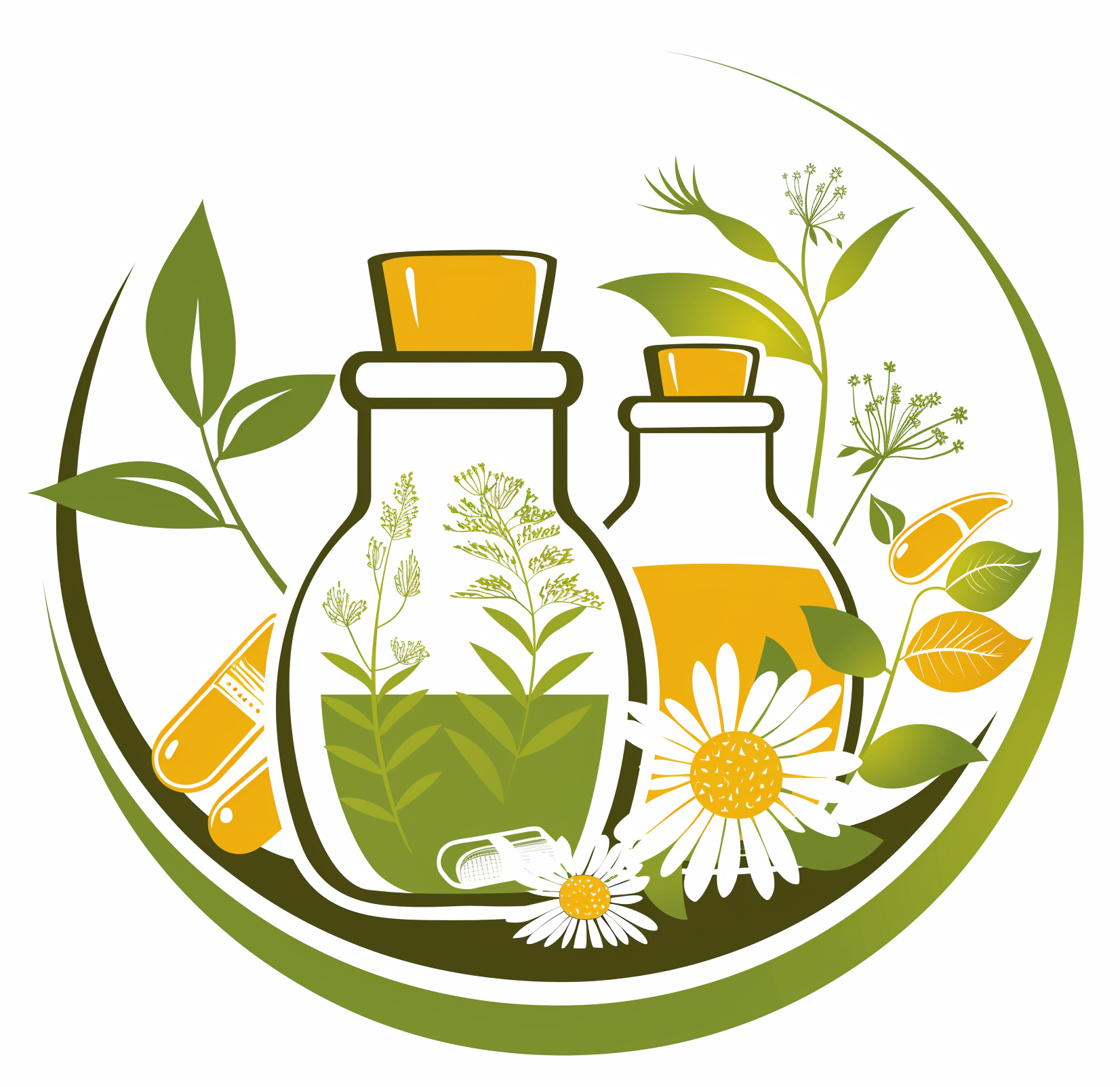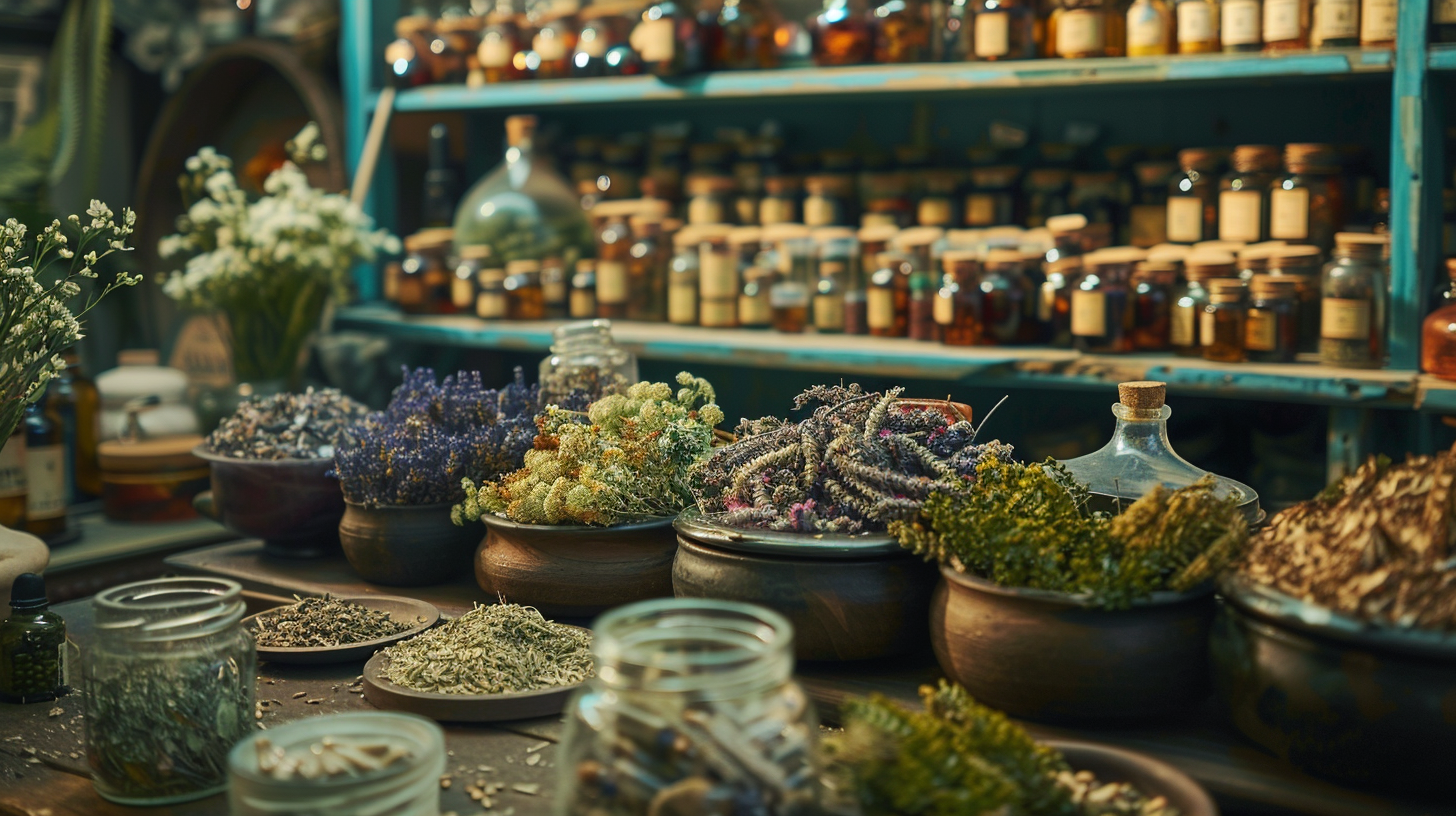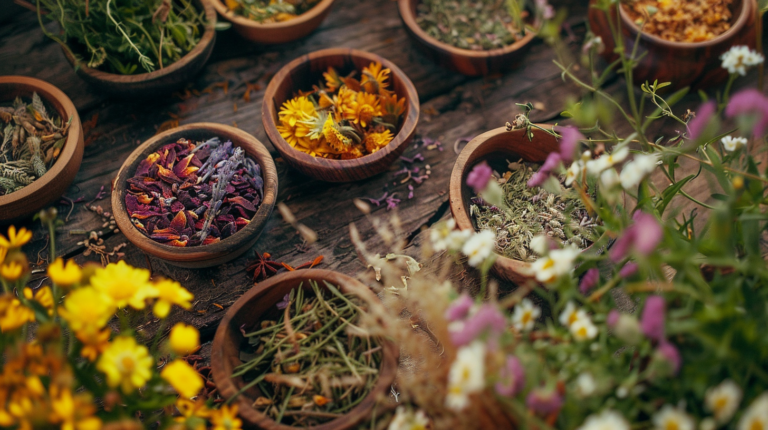Herbalist Medicine: Ancient Remedies for Modern Health
Imagine you’ve been battling persistent health issues, desperately searching for a solution that doesn’t involve the laundry list of side effects common with conventional treatments. You’re not alone; many people are turning away from mainstream medicine, tired of the endless cycle of prescription meds that seem to multiply without genuinely addressing the root cause.
Here’s where things get interesting: what if I told you there’s a more natural path to wellness? A growing number of folks in the United States and across the globe are finding solace in herbalist practices. These time-honored methods utilize the healing properties of plants, offering an alternative that might just be the game-changer you need. Yes, I’m talking about the world of herbal medicine—a realm where herb-infused remedies provide holistic care.
By embracing herbal medicines, you access a treasure trove of benefits—fewer side effects, more sustainable health solutions, and a closer connection to nature. So why not explore how herbal remedies could transform your health journey?
Understanding Herbal Medicine
What is Herbal Medicine?
Definition and History
Herbal medicine, often referred to as traditional medicine, is the practice of using plants for their therapeutic properties. It’s an age-old practice that dates back to ancient civilizations. Texts like the “Shennong Ben Cao Jing” in Chinese herbal medicine and the Egyptian Ebers Papyrus highlight the historical significance of herbs in treating various ailments. These ancient scripts show a deep understanding of how plants can aid in healing and maintaining health.
Traditional Uses and Cultural Significance
Over the centuries, different cultures have leveraged the power of medicinal plants for diverse therapeutic purposes. For instance, Chinese medicine incorporates herbs like ginseng and ginger for restoring balance and energy. In India, Ayurveda celebrates turmeric for its anti-inflammatory benefits. Native American tribes have long used herbal remedies such as Echinacea to boost immunity. The cultural significance of these practices not only spotlights the global reliance on herbal medicine but also underscores its role in daily healthcare practices.
How Does Herbal Medicine Work?
Mechanisms of Action
Herbal medicine works through a variety of mechanisms:
- Biochemical constituents: Herbs contain a rich array of active compounds such as alkaloids, flavonoids, and glycosides. These biochemical constituents contribute to their therapeutic effects by interacting with the body’s systems.
- Synergistic effects: A fascinating aspect of herbal medicine is how various components in a plant work together, producing a synergistic effect that enhances overall efficacy. It’s like a well-rehearsed orchestra playing a symphony where all instruments blend harmoniously.
Comparing Herbal and Allopathic Medicine
When you compare herbal medicine with allopathic (conventional) medicine, several differences become apparent. Herbalists often focus on treating the root cause of an ailment, aiming to restore balance and promote holistic well-being. Allopathic treatments usually target symptoms and are effective in acute and emergency situations. Both systems have their merits, and many modern healthcare practices now adopt an integrative health approach, blending the two for comprehensive patient care.
Common Medicinal Herbs
Top 10 Medicinal Herbs to Start With
- Echinacea
- Ginger
- Ginkgo Biloba
- Turmeric
- Garlic
- Chamomile
- Lavender
- Peppermint
- Aloe Vera
- Milk Thistle
Herb Profiles and Their Benefits
Echinacea
- Immune Support
- Anti-inflammatory Properties
Often referred to as the coneflower, Echinacea is a powerhouse for the immune system. It’s believed to enhance the activity of immune cells, helping your body fend off colds and infections. Historically, it’s been a go-to herbal medicine for reducing the duration and severity of symptoms during illness periods.
Ginger
- Digestive Aid
- Anti-nausea
Ginger is not only a culinary delight but also a medicinal marvel. Known for its warming properties, ginger aids in digestion and helps alleviate nausea. It’s a staple in many traditional medicinal practices from Ayurveda to TCM (Traditional Chinese Medicine).
Ginkgo Biloba
Celebrated for its memory-enhancing effects, Ginkgo Biloba is often used to improve cognitive function and support brain health. This ancient tree’s leaves have been used for centuries in traditional chinese medicine to enhance circulation and treat respiratory issues.
Turmeric
Another gem from the Ayurvedic tradition, turmeric is lauded for its potent anti-inflammatory and antioxidant properties. Curcumin, the active ingredient in turmeric, supports joint health, combats inflammation, and may even have cancer-fighting properties.
Garlic
Garlic is a potent antimicrobial and antiviral agent, making it beneficial for boosting the immune system and reducing blood pressure. It’s often recommended as a natural supplement for heart health.
Chamomile
Known for its calming properties, chamomile is used to soothe the mind and body. It’s a popular choice for reducing anxiety, aiding sleep, and treating digestive disturbances.
Lavender
Lavender is not only cherished for its delightful fragrance but also for its ability to reduce stress and promote relaxation. It’s commonly used in aromatherapy and infusions to calm the nervous system.
Peppermint
Effective in treating digestive issues, peppermint is celebrated for its ability to relieve symptoms of irritable bowel syndrome (IBS) and improve overall digestion. It’s also used for its cooling effects and ability to clear respiratory passages.
Aloe Vera
Aloe Vera is famed for its soothing and healing properties, especially for skin ailments such as burns, eczema, and wounds. It’s also taken internally to support digestive health.
Milk Thistle
Often associated with liver health, Milk Thistle is known to support liver function and detoxification. Its active ingredient, silymarin, is an antioxidant that protects liver cells from toxins.
Growing Your Own Medicinal Herbs
Benefits of a Home Herb Garden
Growing your own herbal products can be immensely rewarding. Not only do you get fresh, organic ingredients for your herbal remedies, but it’s also a soothing, therapeutic activity in itself. Plus, you reduce the need to buy herbal supplements and medicinal plants, which can be costly and sometimes less effective than freshly grown herbs.
Getting Started
Choosing the Right Location
The first step in creating a home herb garden is finding a good location with plenty of sunlight, rich soil, and access to water. Most herbs require at least 6 hours of sunlight per day to thrive.
Essential Tools and Supplies
Stock your garden with the essentials: quality soil, pots or garden beds, a watering can, and natural pest remedies. Consider investing in organic fertilizers and compost to keep your herbs nutrient-rich and thriving.
Top Herbs to Grow
- Basil
- Calendula
- Chamomile
- Echinacea
- Thyme
These herbs are relatively easy to grow and provide a versatile range of uses in herbal medicine. Basil is great for soothing insect bites, Calendula for healing wounds, Chamomile for calming the mind, Echinacea for immune support, and Thyme for respiratory health.
Maintenance and Harvesting Tips
Watering and Soil Management
Maintain consistent watering schedules and check soil moisture regularly. Herbs generally prefer well-draining soil. Adding organic matter like compost improves soil texture and fertility.
Protecting Against Pests
Natural pest control methods are essential to avoid harming your herbal medicines. Use companion planting, essential oils, and natural sprays to keep pests at bay without chemicals.
Harvesting Techniques
Harvest herbs in the morning after the dew has dried but before the heat of the day. This is when their volatile oils are at their peak. Use sharp scissors or snips to avoid damaging the plants, and always leave enough growth for the plant to recover and continue thriving.
Preparing Herbal Remedies
Essential Kitchen Tools for Herbal Medicine
If you’re serious about crafting your own herbal remedies, having the right tools can make all the difference. Here are some essentials:
- Mortar and Pestle: For grinding fresh herbs.
- Tincture Press: To extract maximum benefits from your tinctures.
- Cheesecloth: For straining teas and infusions.
- Glass Jars: Essential for storing your creations safely.
- Double Boiler: Perfect for making salves and ointments.
Basic Preparations
Creating herbal remedies at home can be incredibly rewarding. Below are some basic preparations to get you started:
Herbal Teas
The simplest form of herbal medicine, herbal teas can be made by steeping dried or fresh herbs in hot water. Common herbs used include chamomile, peppermint, and ginger.
Tinctures
Tinctures are potent liquid extracts made by soaking herbs in alcohol or vinegar. They are highly concentrated and can be stored for long periods.
Salves and Ointments
Salves and ointments, made by infusing herbs into oils and then combining with beeswax, are perfect for topical treatments. They are great for skin ailments like burns, rashes, and minor cuts.
Syrups
Herbal syrups combine the medicinal properties of herbs with the soothing qualities of honey. They are often used to treat coughs, sore throats, and other respiratory issues.
Advanced Herbal Formulas
Combining Herbs for Synergistic Effects
One of the fascinating aspects of herbal medicine is the synergistic effects that occur when combining different herbs. This means the combined effect is greater than the sum of the individual effects. Herbs like Echinacea and Goldenseal are often combined to bolster the immune system.
Tips for Accurate Dosing
Unlike pharmaceuticals, herbal dosing can be more of an art than a science. Start with small doses and adjust according to how your body responds. Be sure to follow recommended guidelines and consult a professional herbalist if in doubt.
Safety and Side Effects
Understanding Herbal Safety
While herbal remedies are generally safe, it’s essential to understand their potential side effects and interactions with other medicines. Some common side effects include digestive upset, allergic reactions, and skin sensitivities. Always start with a small dose to test for any adverse effects, and consult a healthcare provider if you are taking other medications.
Common Side Effects and How to Manage Them
Even natural remedies can have side effects. For instance, St. John’s Wort can interfere with birth control pills and other medications. Similarly, some herbs like Echinacea may cause allergic reactions in sensitive individuals. Always keep an eye out for any unusual symptoms and stop use if necessary.
When to Consult a Healthcare Professional
If you are considering using herbal supplements for serious conditions like cancer or chronic illnesses, consulting a healthcare professional is critical. While herbal medicine can complement conventional treatments, it should not replace them unless advised by a qualified healthcare provider.
Integrating Herbal Medicine into Your Life
Creating Daily Herbal Routines
Incorporating herbs into your daily routine can be a seamless and enjoyable process. Start your day with a calming cup of chamomile tea, or add fresh basil and thyme to your meals. Small, consistent habits lead to significant health benefits over time.
Incorporating Herbs into Your Diet
Incorporate herbal products into your diet effortlessly by adding herbs like rosemary, oregano, and turmeric to your cooking. They not only enhance the flavor of your dishes but also provide a host of health benefits.
Sharing Herbal Knowledge with Family and Friends
One of the most rewarding aspects of embracing herbal medicine is sharing this knowledge with your loved ones. Host a workshop, create DIY herbal kits, or simply gift your homemade remedies. Teaching others about the benefits of medicinal plants not only spreads awareness but also encourages a healthier, more natural lifestyle.
As you embark on this journey into the world of herbal medicine, remember that nature has provided us with a treasure trove of plants that can enhance our health and well-being. Happy herb crafting!


